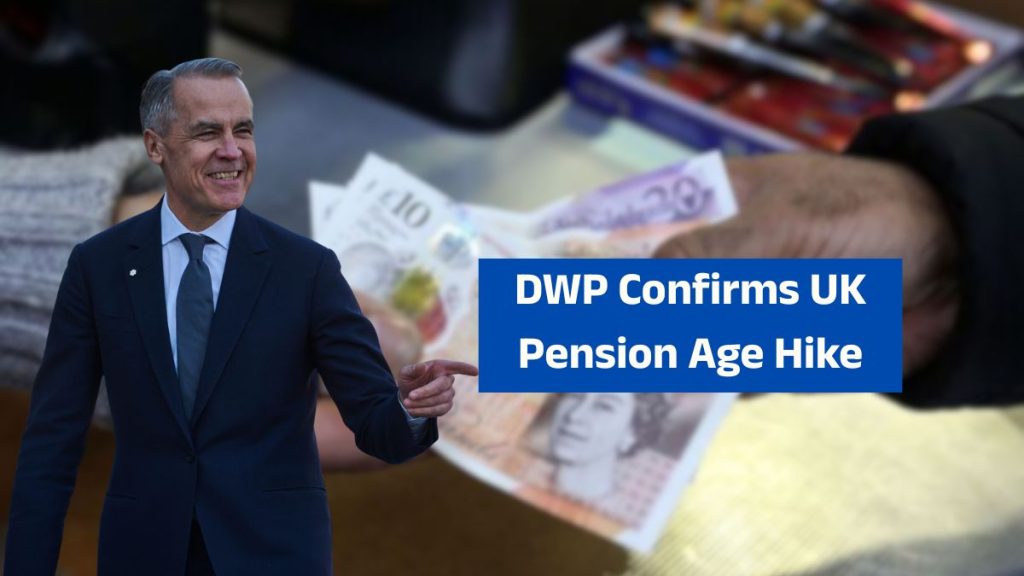The UK government has announced that the state pension will rise to £221.20 per week starting in October 2025. This increase, tied to the triple lock guarantee, is designed to help pensioners keep pace with inflation and rising living costs. Millions of retirees across the UK will benefit from this uplift, though eligibility depends on individual contribution histories and state pension age.
A Step Toward Protecting Pensioners

With inflation placing pressure on retirees’ finances, this adjustment reinforces the government’s commitment to ensuring older citizens maintain their purchasing power. While it won’t eliminate all financial challenges, the increase provides much-needed relief for millions relying on their state pension as a primary income source.
What Is the New State Pension Rate?
Weekly Payment in 2025
From October 2025, those eligible for the new state pension will receive £221.20 per week. This is a rise from the previous year’s rate and continues the government’s promise to increase pensions in line with the triple lock system.
Why It Matters
The rise reflects a broader strategy to ensure pensions grow with inflation, wage growth, or a guaranteed 2.5%, whichever is highest. This ensures pensioners do not see their retirement income eroded by economic conditions.
Who Is Eligible for the £221.20 Weekly State Pension?
Key Criteria
- State Pension Age: Must reach state pension age on or after 6 April 2016.
- National Insurance Contributions: At least 35 qualifying years are required for the full rate.
- Partial Pension: If you have between 10 and 34 years of contributions, you’ll receive a proportion of the full pension.
- Minimum Requirement: At least 10 years of qualifying contributions are needed to receive any pension.
Importance of NI Records
A qualifying year is gained either by working and paying contributions or by receiving credits while unemployed, on certain benefits, or caring for children. Reviewing and filling any gaps is crucial to securing the full pension.
How to Check Your Pension Eligibility
Steps for Pensioners
- Visit the GOV.UK website and log into your account.
- Review your National Insurance record.
- Check your projected state pension amount.
- Identify any gaps in your record.
- Consider voluntary contributions to increase your pension if needed.
Financial advisers also recommend checking eligibility at least a year before retirement to avoid last-minute issues.
Understanding the Triple Lock Mechanism
Guaranteeing Pension Growth
The triple lock ensures that pensions increase each year by the highest of:
- Inflation (CPI measure)
- Earnings growth
- 2.5% minimum increase
This system has protected UK pensioners since its introduction, ensuring their incomes remain resilient against rising prices and wages.
Impact on Pensioners
Supporting Everyday Expenses
The increase to £221.20 a week will provide meaningful financial support, particularly as living costs continue to rise. Pensioners may use the additional funds for housing, healthcare, food, and utilities.
Not a Complete Solution
While helpful, the increase may not fully offset rising expenses in areas such as housing or private care. Pensioners with incomplete NI records may still receive less than the full amount.
Key Dates for the New State Pension
- October 2025: New pension rate of £221.20 per week begins.
- Before Retirement: Pensioners are advised to check records and contributions at least three months before reaching state pension age.
- Application: The UK government encourages applying for the state pension three months before eligibility.
Filling Gaps in National Insurance Contributions
Voluntary Contributions
Those with fewer than 35 years of qualifying contributions can make voluntary Class 2 or Class 3 contributions to improve their pension entitlement.
Why It Matters
Filling these gaps can significantly increase retirement income and ensure access to the full £221.20 weekly pension. Consulting a pension advisor is recommended for tailored advice.
5 FAQs on UK State Pension October 2025
Q1. What is the new UK state pension rate from October 2025?
The state pension will rise to £221.20 per week starting in October 2025.
Q2. Who qualifies for the full amount?
You must reach state pension age on or after 6 April 2016 and have 35 qualifying years of National Insurance contributions.
Q3. Can I receive a pension with fewer than 35 years of contributions?
Yes, but it will be pro-rated. At least 10 years of contributions are required to receive any pension.
Q4. What is the triple lock system?
It guarantees annual pension increases by the highest of inflation, wage growth, or 2.5%.
Q5. How can I check if I’m eligible for the new rate?
You can log into the GOV.UK pension portal to view your National Insurance record and projected pension, and make voluntary contributions if needed











